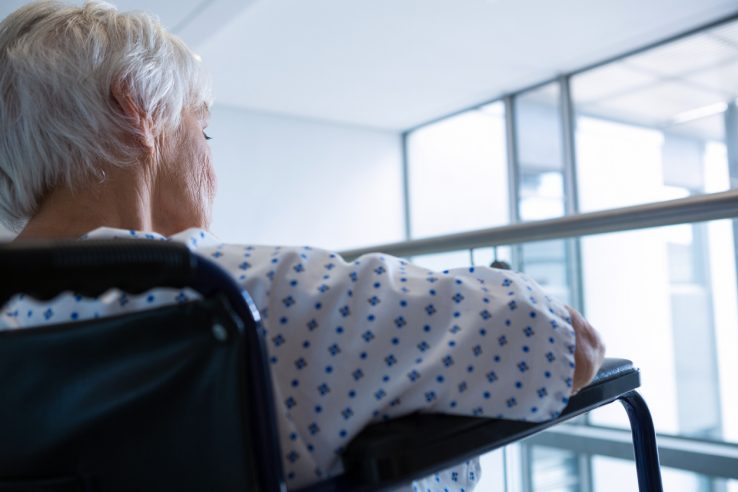For registered nurse Rene Turner, quality improvement was not something she was satisfied with working on off the side of her desk, she wanted to see it become a mainstream practice among the patients she worked with the most, older adults with dementia.

This November, Turner graduated with an MSc in Quality Improvement and Patient Safety (QIPS) from the Institute of Health Policy Management and Evaluation. She is also the 2018 recipient of the Harry and Rose Perlstein Award, recognizing the best MSc QIPS project supporting quality and safety in long-term or post-acute care hospitals.
“I wanted to improve pain assessment in dementia patients,” said Turner. “In my experience working on both seniors mental health units in hospital and as a consultant in the community for long-term care, I could see that many patients exhibiting response behaviour’s while in care, were under-assessed for pain.”
One example Turner recalls involved a patient who refused to allow nursing staff to open her hands in order to wash them. Unbeknownst to them, the patient had previously suffered a fractured wrist, but had refused to wear a brace due to her cognitive impairment.
These types of responsive behaviours can significantly affect the patient and staff experience often leading to the increased use of restraints or psychotropic medications, all of which directly influence the safety and quality of care of these patients.
After witnessing this ongoing gap in pain management for patients with dementia, Turner’s project quickly came into focus. She sought to develop a strategy that would help nurses begin to assess pain levels amongst newly admitted patients one hundred percent of the time.
“72% of the patients on the seniors mental health unit have a secondary diagnosis related to pain such as arthritis, and it is obvious this is something we should be looking at, assessing and validating at the time of screening,” said Turner. “Upon further investigation, it became clear that no one was receiving a pain assessment and there was no pain management strategy in place.”
 With the support of staff on the seniors mental health unit and the collaboration of key stakeholders, Turner opted to implement an easy to use validated screening tool that could be added to the admission protocol of the hospital unit. Families of patients were informed of the initiative allowing them to provide valuable information about what worked best for the patient at home, and in this way helped to create a collaborative approach to the pain management strategy. Meanwhile, nurses partook in a series of educational development tactics on the use of the new tool such as in class training, daily huddles, weekly email reminders and more.
With the support of staff on the seniors mental health unit and the collaboration of key stakeholders, Turner opted to implement an easy to use validated screening tool that could be added to the admission protocol of the hospital unit. Families of patients were informed of the initiative allowing them to provide valuable information about what worked best for the patient at home, and in this way helped to create a collaborative approach to the pain management strategy. Meanwhile, nurses partook in a series of educational development tactics on the use of the new tool such as in class training, daily huddles, weekly email reminders and more.
“The aim was to have the screening completed 100% of the time upon admission, and we were able to achieve that,” said Turner.
Despite the success of her project, Turner recognizes the ongoing challenges that need to still be addressed including the creation of a more robust pain strategy.
“When a screening presented with a positive pain assessment it became difficult to determine next steps in terms of non-pharmacological interventions,” said Turner. “We don’t want to see an overuse of narcotics as a result of this new tool. Part of the next phase of this project will be to help nurses manage pain and make decisions on pain following the assessment.”
Pain is of course only one aspect of quality improvement for dementia patients in long-term and acute care, but for Turner, this program and this project have been an opportunity to shift perspectives to include a quality improvement lens.
“If we are going to make a change in the way we provide healthcare, we need to keep the patients in mind, and ask the question why does it matter to them,” said Turner, “it’s a lens we should always be looking through in our efforts to transform care.”
Related News

Sign up for IHPME Connect.
Keep up to date with IHPME’s News & Research, Events & Program, Recognition, e-newsletter.
Subscribe to Connect Newsletter
Get in Contact
Communications
Marielle Boutin
Email Address: ihpme.communications@utoronto.ca





